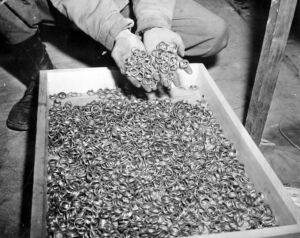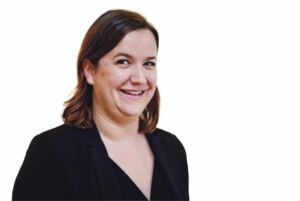Opinion
You’re Stil Here: No gold teeth …
Kelly Draper
This article is more than 9 years old.

Denmark has its hands full, that’s for sure, but surely the Nazi handbook isn’t the answer
When the government proposed that the police be allowed to take valuables from refugees, they must have realised comparisons with crimes against humanity would be made.
Notice the exceptions the police will be allowed to make: no gold watches; no gold teeth; no wedding bands, unless they are really expensive. They knew they would be compared to the Nazis for doing this.
This is personal
There’s a reason this is an easy comparison to make: of all the crimes the Nazis committed against their enemies, this one dehumanised them perhaps the most.
When we pay for goods and services, we usually do so with money because money is impersonal. Money is just an agreed value assigned to a token.
Each object you own a set of memories and impressions. To have your valuables taken away hurts in a way that paying for something does not.
The goverment assures us it is only going to take away ‘bags of diamonds’. The politicians chose this phrase with malicious care. Who could feel bad about taking away someone’s bag of diamonds? Still, if this is at the police’s discretion, who knows what will be taken and how it will feel. Will we ever be told?
Unfair and unjustifiable
To be sure, the Danish government is not suggesting that refugees be forced to sell their belongings and use the money to support themselves. They are suggesting that refugees hand over what is judged to be excessively valuable to the police.
Then they will have to live in a refugee camp, and in some places they will not even be allowed to visit the local shops.
The main defence of this has been: Danish people can only receive benefits if their assets are below a certain level.
But this is a poor comparison as Danish people are not visited by the police to have their goods assessed. Their belongings are not confiscated. The threshold for ‘wealthy’ is much higher and only resources like money and property count. Danish people can spend their money and live wherever they want, even if they receive state assistance.
Failing their commitment
But the main problem is this: Danish people in need have benefited from the Danish system. They were housed, educated and kept safe and healthy. If they became wealthy, it was because Danish society assisted them. Politicians suggested that the well-off have to see to themselves before the state will help them. Denmark democratically agreed, and that is the system we have.
Refugees with ‘bags full of diamonds’ became wealthy independently of Denmark. They have no debt to the Danish people. They should be allowed to keep or sell their belongings as they see fit.
Denmark ratified commitments to shelter those who are fleeing from persecution or war. To suggest that refugees must pay for their shelter upfront with their personal possessions is to turn these agreements on their head.
This is not about money. This is not about diamonds. This is about Denmark’s commitment to upholding the human right to life by providing asylum to those who need it.

About
Kelly Draper
Kelly Draper is a British teacher who came to Denmark for work. She acts informally as a critical friend to Denmark. This has not gone down particularly well with Danes, who often tell her she should like it or leave it. Her blog is at adventuresandjapes.wordpress.com.










































